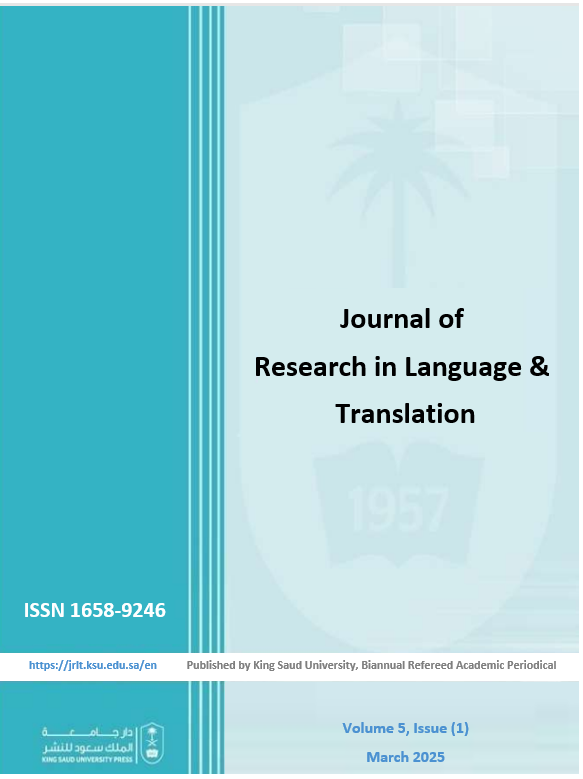Strategies and Sensitivities in Arabic Subtitling of Taboos in Horror TV Series
DOI:
https://doi.org/10.33948/JRLT-KSU-5-1-6Keywords:
Translation Studies, subtitling, Audiovisual Translation (AVT), taboo, StrategiesAbstract
This paper explores Arabic translation of taboos in horror TV series by examining how translators navigate the delicate balance between preserving the intended emotional impact of this type of language and adhering to religious and Arabic cultural norms associated with the Arabic-speaking audience. The study implements a qualitative analysis of a select corpus of texts from a horror TV series in English (ST) which has been translated into Arabic (TT) by both commercial subtitlers and cybersubtitlers. The analytical framework relied mainly on Toury’s notion of norms to illustrate how different strategies/approaches may affect the emotional impact of taboos in TT. This research contributes to the understanding of how the function intended by the TT may be different from those intended by the ST, which is an aspect of ‘Skopos theory’. The study investigates these research questions: 1) how do Arabic translators handle the translation of taboos in horror TV series/movies, considering cultural and religious sensitivities? 2) What strategies are employed to maintain the ST’s intended emotional impact of taboos? The taboos in the analyzed corpus were subjected to these criteria: they must be explicit in the ST and used as a taboo and not a conversational gap filler; there is no need to analyze each example of each taboo if they are similar in context and function. It was found that commercial subtitlers and cybersubtitlers tend to use euphemisms and deletions when rendering most English taboos. It was also found that cybersubtitlers were, in some cases, more courageous as they tend to keep some of the ST’s intended emotional impact by translating taboos.

